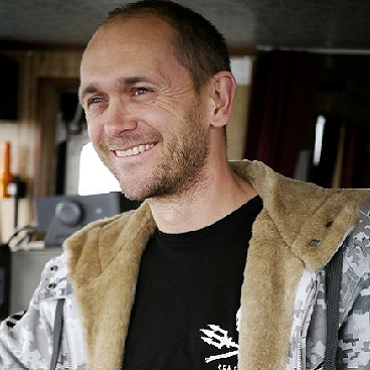Scientific Program

Alex Cornellisen
Sea Shepherd Organization, USA
Biography:
Captain Cornelissen has participated in more than 25 Sea Shepherd campaigns, including five trips down to the Antarctic to stop the Japanese whale poachers. He first joined Sea Shepherd in 2002. On his first day on board the Farley Mowat, he dove into the waters of the Galapagos Marine Reserve to save a turtle from a long line. Even though such an initiation seems hard to beat, he has since had many inspirational moments. Saving 15 dolphins from the nets in Taiji in 2003. Saving seals in Canada in 2005 and 2008, campaigns that are by far the bloodiest and most brutal to witness. Over 14 years he served as a member of the Sea Shepherd crew on a number of ships in Sea Shepherds fleet, working his way up to the bridge to become the First Officer under Captain Paul Watson and appointed Captain in 2006. He served nonstop on board the ships until the end of 2007 when he started working as the Director of Operations in the Galapagos Islands. Here he remained for seven years, running an effective campaign to stop poaching in the Galapagos Marine Reserve. In January 2014, Captain Cornelissen became the CEO of Sea Shepherd Global. Captain Cornelissen is the president of the board of directors for Sea Shepherd Germany, Luxemburg, Netherlands and Switzerland and serves as a board member in most of the other established Sea Shepherd countries. Captain Cornelissen gives presentations around the world to highlight the important work of the Sea Shepherd movement and to inspire others to join the fight.
Abstract
Sea Shepherd Global has been cooperating with the governments of Liberia, Gabon, Sao Tome and Tanzania to target Illegal, Unreported and Unregulated (IUU) fishing in their waters. Foreign fishing fleets are causing massive damages to local fish populations and local artisanal fishermen are reporting ever declining catches, putting their food security at risk. Over the past two years, these cooperation’s have resulted in the arrest of over 50 vessels and for the first time in decades local catches are increasing again. Since 2000 Sea Shepherd has been working with the Ecuadorian authorities to provide support in order to protect the Galapagos Marine Reserve (GMR). Our work has focussed primarily to combat illegal fishing and wildlife smuggling. It ranges from providing ships and materials; the building of an Automatic Identification System (AIS) to monitor all vessel movement to the selection and training of a specialised police dog unit that is able to detect wildlife smuggling. We work together with the Galapagos National Park Service and the Ecuadorian National Police to protect this World Heritage Site.
- Biodiversity & Ecology
- Marine & Coastal Biodiversity
- Bioprospecting Sustainable Use
- Afforestation
- Environmental Toxicology
- Genetic Diversity
- Agrobiodiversity & Agroecology
- Captive Breeding
- Molecular Ecology
- Phenology
- Biodiversity Informatics
- Revive & Restore Species

